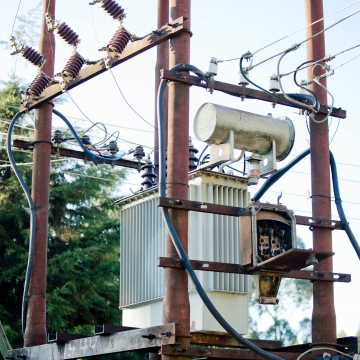Dynamics of power-transmission capacity expansion under regulated remuneration
Efficient provision of electricity requires timely expansions of power transmission capacity. However, regulation does not always send the right signals to generate the required (and timely) investments. Therefore, it is important to evaluate the effect of alternative regulations on investment on transmission capacity. In this paper, considering regulated remuneration, we perform this evaluation with a behavioral simulation model of the transmission capacity expansion, in which capacity is endogenously determined by the demand/supply relation.
Climate impacts on hydropower in Colombia: A multi-model assessment of power sector adaptation pathways
Climate change is likely to affect water availability and therefore hydropower generation in many regions of the world. In drying regions, hydropower generation may be impaired, creating a need for new power investments that would otherwise have been unnecessary. In this study we apply two partial equilibrium models (GCAM and TIAM-ECN) and two general equilibrium models (MEG4C and Phoenix) to identify possible pathways of power sector adaptation for Colombia under climate change.
Understanding dynamics and policy for renewable energy diffusion in Colombia
Colombia has committed to reduce greenhouse gas emissions in 20% by 2030 with respect to business-as-usual in the COP21. One policy is the Renewable Energy (RE) law launched in 2014, aiming “to promote the development and use of non-conventional energy sources” with indirect incentives, such as tax reduction or exemptions. Direct incentives, such as price-based, are not included in the law. Experiences in other countries have proven that direct incentives are more efficient than indirect ones to promote RE.
The effects of biofuels on food security: A system dynamics approach for the Colombian case
There has been a growing interest in biofuel production to reduce oil dependence in the transportation sector. However, this has also sparked a debate on how the introduction of biofuels may jeopardize food security. In this paper we evaluate the effects of biofuel production on food security using system dynamics. First, we developed a system dynamics model to understand the long-term interaction between food production, biofuel production and livestock farming. Then, we calibrated and applied the model to the Colombian case.
Implementation proposal for an ancillary service for Island Operation Capability in Colombia: A system dynamics approach
The Island Operation Capability service allows operators to split the system (in case of an accident, for instance) and operate as an integral isolated subsystem. This, in turn, increases reliability, resilience, efficiency, and reduces restoration times after a blackout in the islands power systems. The provision of this kind of service from distributed energy resources has recently been introduced in different power systems. This paper outlines a proposal for the implementation of Island Operation Capability in the Colombian electricity market.
Competition and Gender in the Lab vs. Field: Experiments with Off-Grid Renewable Energy Entrepreneurs in Rural Rwanda
Applications of lab experiments to real-world phenomena are limited. We fill the gap by examining how gender attitudes and performance under competitive situations in the lab reflect microenterprise outcomes in the renewable energy sector of Rwanda – a country with progressive gender policies despite its traditional patriarchal setup. We use the standard Niederle and Vesterlund (2007) experimental design in addition to a unique dataset from off-grid microenterprises, managed by entrepreneurs who have been working in mixed and single-sex teams since 2016.
Pagination
- Previous page
- Page 49
- Next page




